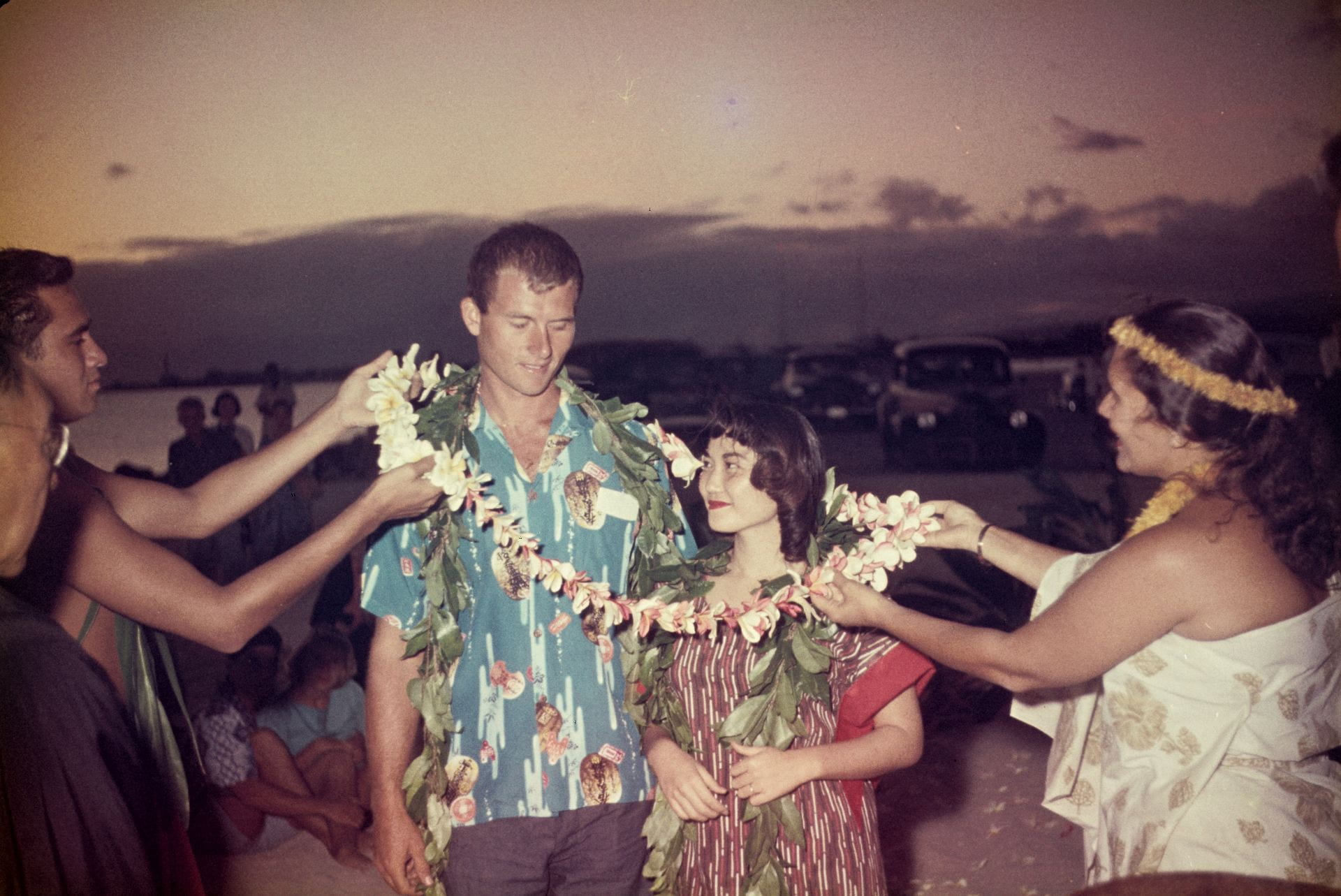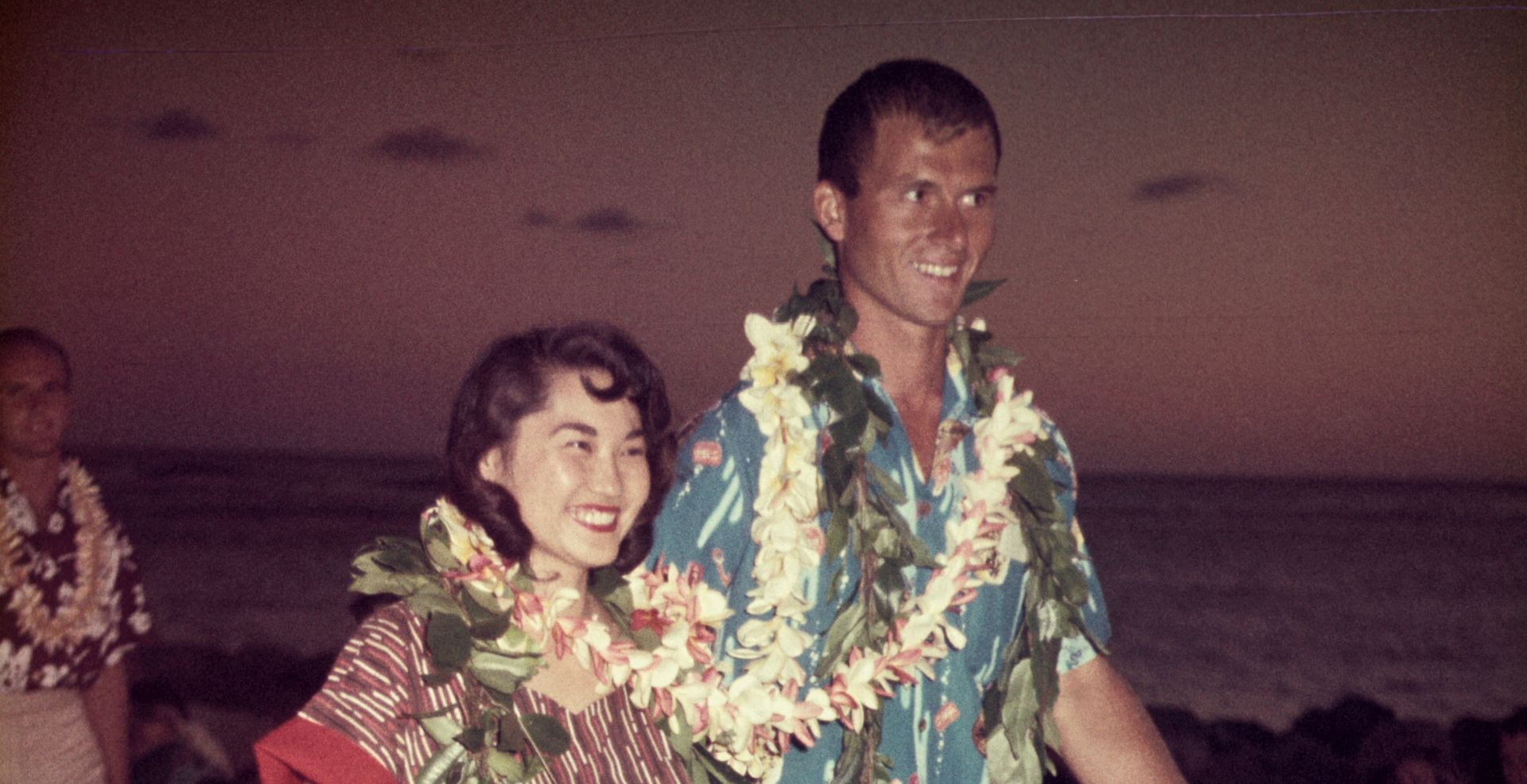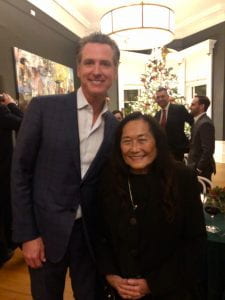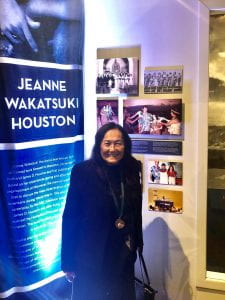Jeanne Wakatsuki Houston’s American Story
The 1973 memoir Farewell to Manzanar opens with a scene of seven-year-old Jeanne Wakatsuki Houston watching her fisherman father and eldest brothers floating off the shore of Santa Monica, Calif., on December 7, 1941—the day of the Pearl Harbor attack.
Wakatsuki Houston, ’56 Sociology, and her family were Japanese-American, members of a community that the American government determined threatening enough to issue Executive Order 9066 the following spring, forcing more than 100,000 people to relocation centers, internment and imprisonment camps across the United States. Wakatsuki Houston’s father was immediately sent to a federal prison in Bismarck, North Dakota, while she joined her mother and nine siblings on a Greyhound bus to Manzanar, one of 10 camps established to “contain” Japanese and Japanese-Americans during World War II. Wakatsuki Houston became a celebrated writer, one of a generation who publicly shared the impact of the internment camps on their identities, their families and the nation.
“America is still a melting pot. We’re a very diverse country. That’s our strength and beauty.”
“For years, we never talked about the camps because of the shame they made us feel,” says Wakatsuki Houston from her Santa Cruz home in spring 2020. “So much was lost during that time. We hadn’t realized our own rights as citizens in this country, whose attitude at the time was pretty racist. Living in the camp was such a powerful experience; it formed all of my thinking from then on out—my self-image, my interest in politics and everything else came from that experience.”
The cultural, psychological and emotional impact of internment was obvious in hindsight—Wakatsuki Houston says she and members of her community were made to feel like criminals. The internalized messages of shame and guilt were embedded so deeply that she did not share her Manzanar experience with her husband, writer and fellow Spartan James Houston, ’56 Radio-Television, until they had been married more than a dozen years. During the intervening years, Wakatsuki Houston says she would refer to Manzanar as simply “camp,” similar to the way one would describe summer camp, though the reality was harsher, colder and more bitter. It wasn’t until her nephew, a sociology student at UC Berkeley, asked her how she felt about Manzanar, his birthplace, that the floodgates opened. For the first time, she felt permission to feel anger about what her family—and thousands of others—endured at the hands of the American government.
In 1971, Wakatsuki Houston partnered with her husband to write Farewell to Manzanar. For months, he interviewed her on tape, capturing memories of her father returning from North Dakota to Manzanar a changed man, of siblings getting married and having children in the camp, of exploring the barbed wire boundaries of their makeshift “home.” Wakatsuki Houston relived what it felt like to move back to Long Beach at age 11, her family home gone, her father’s business destroyed, forced to start over.
The family relocated to San José, where her father became a sharecropper for Driscoll’s Strawberries. Wakatsuki Houston graduated from James Lick High School before enrolling at San Jose State, where she studied journalism and Spanish. She had dreams of becoming “the next Brenda Starr,” a journalist who told the stories of real people, though she felt that, “being an Asian,” the chances of her getting a job were slim. While the specificity of her experience is part of what made the book famous, it was something deeper—an emotional truth—that made Farewell to Manzanar a cultural landmark.
When the Houstons completed their manuscript, they shopped it around before it was published by a San Francisco press. She remembers New York publishers turning them down, explaining that “nobody knew about the internment camps” and thus “who would care?” Ironically, Wakatsuki Houston says it was the book’s ability to express the inexpressible that made it an effective educational tool. Three years after its publication, she and her husband adapted the book into a film and received the 1976 Humanitas Prize and the Christopher Award for their screenplay.
Her anthologized essays and short stories were first collected in Beyond Manzanar: Views of Asian American Womanhood. Her works have earned numerous honors, including a United States-Japan Cultural Exchange Fellowship; a Rockefeller Foundation residence at Bellagio, Italy; and a 1984 Wonder Woman Award, given to women over 40 who have made outstanding achievements in pursuit of truth and positive social change. In December 2019, she was inducted into the 13th class of the California Hall of Fame by Governor Gavin Newsom. While she is best known for Farewell to Manzanar, Wakatsuki Houston is also the author of Legend of the Fire Woman. Her work shed light on a chapter of American history that for decades had been denied or diminished.
“Stories matter because when people can identify with their characters, they can really accept the truth, feel it and understand it,” says Wakatsuki Houston. “I’ve received tons of letters over the years from people who experienced the same thing, or from people who identified with the book because they’re Jewish or they’re overweight or they’re short. They understand the experience of being left out.”
Wakatsuki Houston credits the civil rights movement, and specifically the work of Dr. Martin Luther King Jr., for creating opportunities for people of color to share their experiences, voice their frustration and force the nation to confront racial inequality. By learning about the Black Power and the Native American rights movements, Wakatsuki Houston says she could contextualize the internment of Japanese-Americans within the larger framework of American history. What did it mean to be American? By becoming a writer, she could define her identity for herself.
“This was a very powerful time in America—not unlike today,” she says. “Our stories—the stories of marginalized people and people of color—were starting to come out and people were becoming more educated. You can become ‘Americanized’ but still maintain and cherish your heritage. It keeps happening. People keep coming from refugee camps. America is still a melting pot. When there is more than one voice, maybe it feels safer to share. And not only that—this is what America is made of, so many voices. We’re a very diverse country. That’s our strength and beauty.”







